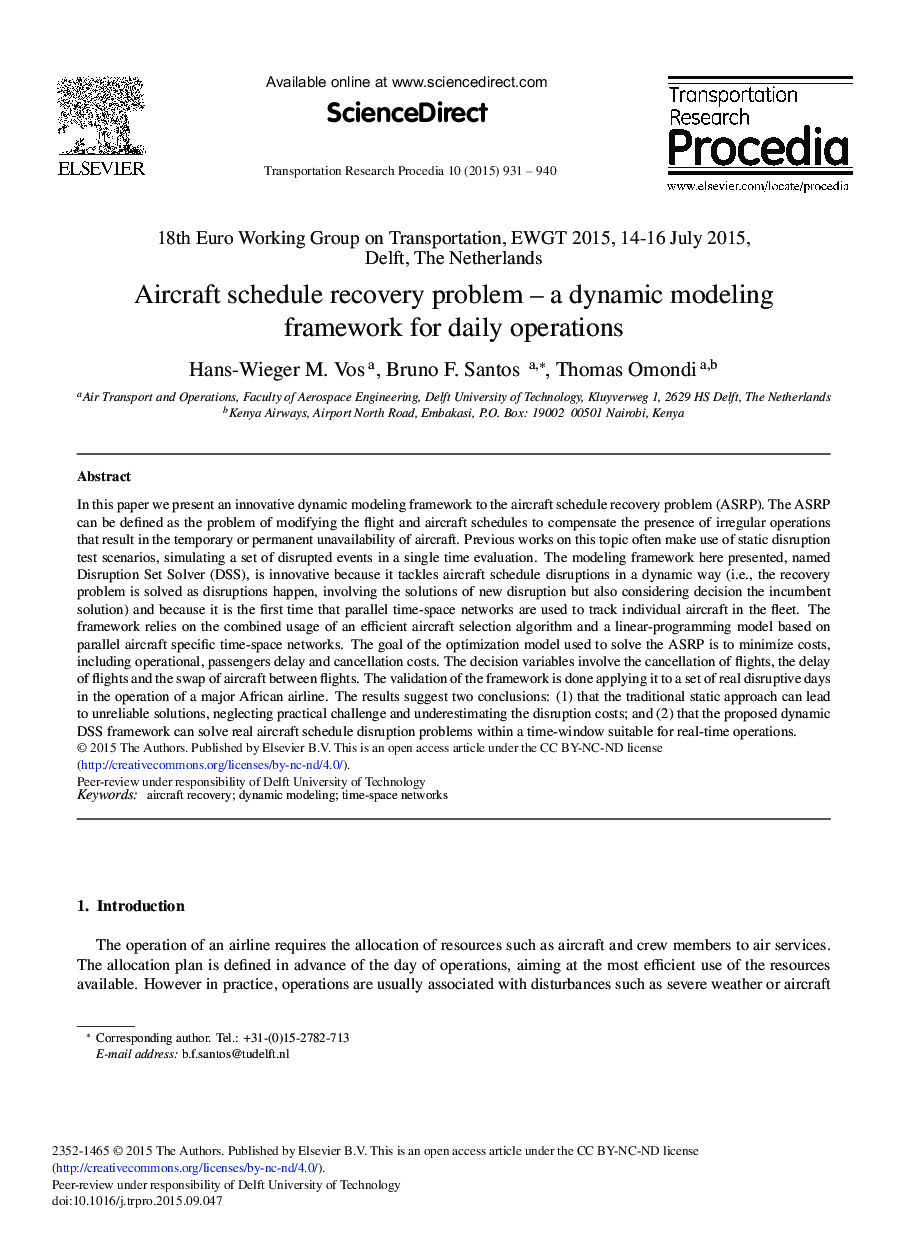| Article ID | Journal | Published Year | Pages | File Type |
|---|---|---|---|---|
| 1106903 | Transportation Research Procedia | 2015 | 10 Pages |
In this paper we present an innovative dynamic modeling framework to the aircraft schedule recovery problem (ASRP). The ASRP can be defined as the problem of modifying the flight and aircraft schedules to compensate the presence of irregular operations that result in the temporary or permanent unavailability of aircraft. Previous works on this topic often make use of static disruption test scenarios, simulating a set of disrupted events in a single time evaluation. The modeling framework here presented, named Disruption Set Solver (DSS), is innovative because it tackles aircraft schedule disruptions in a dynamic way (i.e., the recovery problem is solved as disruptions happen, involving the solutions of new disruption but also considering decision the incumbent solution) and because it is the first time that parallel time-space networks are used to track individual aircraft in the fleet. The framework relies on the combined usage of an efficient aircraft selection algorithm and a linear-programming model based on parallel aircraft specific time-space networks. The goal of the optimization model used to solve the ASRP is to minimize costs, including operational, passengers delay and cancellation costs. The decision variables involve the cancellation of flights, the delay of flights and the swap of aircraft between flights. The validation of the framework is done applying it to a set of real disruptive days in the operation of a major African airline. The results suggest two conclusions: (1) that the traditional static approach can lead to unreliable solutions, neglecting practical challenge and underestimating the disruption costs; and (2) that the proposed dynamic DSS framework can solve real aircraft schedule disruption problems within a time-window suitable for real-time operations.
